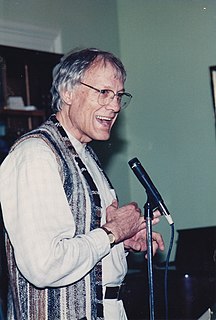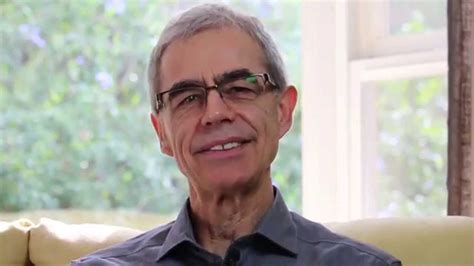A Quote by Allen W. Wood
Consequentialist theories begin with a very simple and undoubtedly valid point: Every action aims at a future end, and is seen as a means to it.
Related Quotes
It is rational to choose the right means to your ends to develop very elegant abstract formal theories of rational choice, and then turn these into what look like moral theories. Philosophers tend to be ravished by the formal beauty of such theories, and they don't pay much attention to the fact that our human limitations make them pretty useless in practice, while the simple point about instrumental reasoning is too shallow to be of much real moral interest.
When consequentialist theories are developed in terms of an equally shallow psychology of the good - such as a crude form of hedonism - the results can sometimes strike sensible people as revolting and inhuman. People can be reduced to simple repositories of positive or negative sensory states, and their humanity is lost sight of entirely.
History belongs to the intercessors, who believe the future into being. If this is so, then intercession, far from being an escape from action, is a means of focusing for action and of creating action. By means of our intercessions we veritably cast fire upon the earth and trumpet the future into being.
Managers are already voracious consumers of theory. Every time they make a decision or take action, it's based on some theory that leads them to believe that action will lead to the right result. The problem is, most managers aren't aware of the theories they're using, and they often use the wrong theories for the situation.
Working with the editor on the set means that it is possible to keep track, at every moment, of the exact temperature of the trajectory of the scene - and know precisely what is required to continue, or precede, the action already shot. Like building a giant jigsaw puzzle. This is a freeing procedure because one is divested of all the options that might otherwise hamper one's choices. Clarity is possible. And that means one can relax into each shot, knowing the clear boundaries of where it might end or begin. And with relaxation, comes play.
As you begin to take action toward the fulfillment of your goals and dreams, you must realize that not every action will be perfect. Not every action will produce the desired result. Not every action will work. Making mistakes, getting it almost right, and experimenting to see what happens are all part of the process of eventually getting it right.
The physical universe was created when Oneness became duality, and we can see this duality, this yin and yang, everywhere in the universe, in every atom, every action, and in every function of the human body. Yin and yang are manifest everywhere, except at the very center of being, the perfect point of balance, at that infinite moment where the future becomes the past.
There ought not be two histories, one of political and moral action and one of political and moral theorizing, because there were not two pasts, one populated only by actions, the other only by theories. Every action is the bearer and expression of more or less theory-laden beliefs and concepts; every piece of theorizing and every expression of belief is a politcal and moral action.
The first commandment for every good explorer is that an expedition has two points: the point of departure and the point of arrival. If your intention is to make the second theoretical point coincide with the actual point of arrival, don't think about the means -- because the journey is a virtual space that finishes when it finishes, and there are as many means as there are different ways of 'finishing.' That is to say, the means are endless.

































